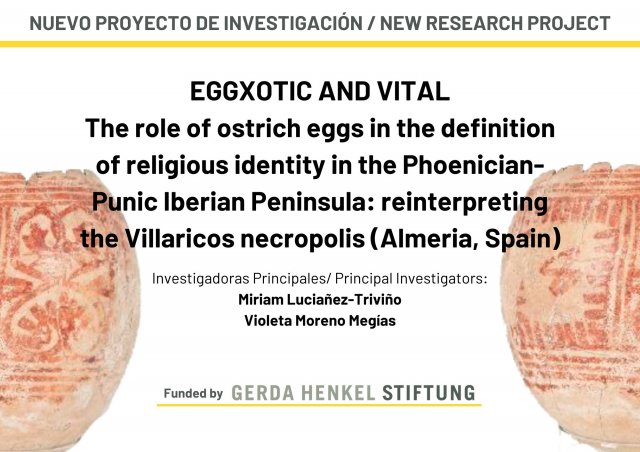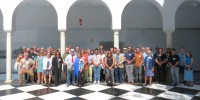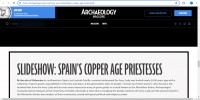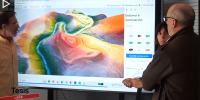The Gerda Henkel Foundation has funded with 24,750 euros the project entitled Eggxotic and vital. The role of ostrich eggs in the definition of religious identity in the Phoenician-Punic Iberian Peninsula: reinterpreting the Villaricos necropolis (Almeria, Spain). It will be led by Miriam Luciañez-Triviño (Distinguished Researcher and member of the Atlas Research Group, HUM-694) and Violeta Moreno Megías (Assistant Professor and member of the Research Group De la Turdetania a la Bética, HUM-152).
In the past, ostrich eggs were traded and exchanged as a luxury items, often with a symbolic value. During the Iron Age (1st millennium BC), its use and commercialisation boomed throughout the Mediterranean, with an important centre of production and consumption in the western Mediterranean (Iberian Peninsula and Balearic islands, in Spain). This project focuses on the study of an extraordinary set of ostrich eggs (more than 700) from the necropolis of Villaricos in Almeria. The project aims to explore the technology of the production of these ostrich eggshells and the technical choices of the artisans of the 1st millennium BC; the geographical origins of the eggs, the supply areas and contact networks; and the use of ostrich eggshells in terms of identity representation. To achieve these objectives, stable isotope analysis, radiocarbon dating and Bayesian modeling will be applied in combination with the technological study of the eggs and the rest of the material culture in these tombs.



